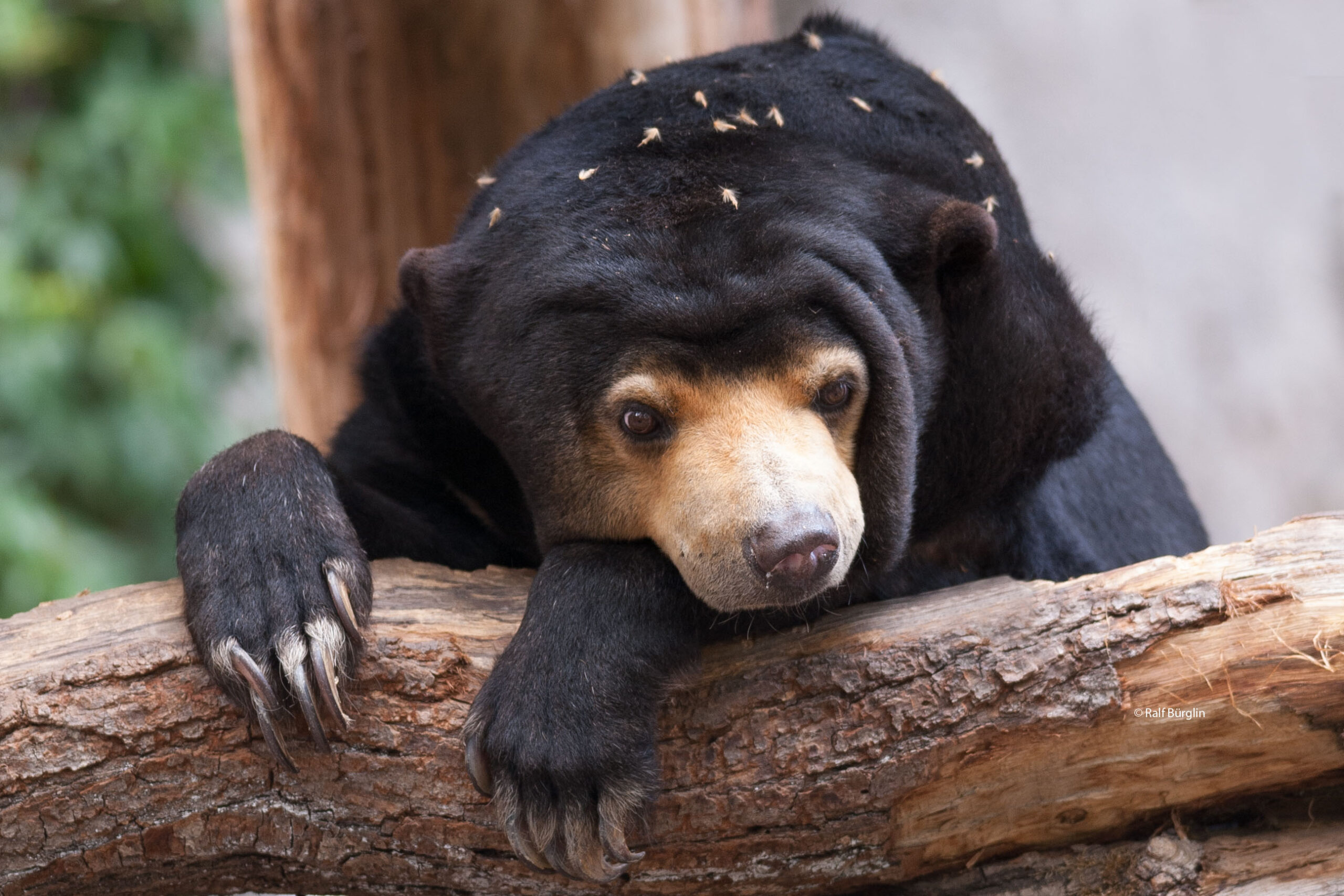Sun bear, an endangered species
Conservation of Sun bear (Helarctos malayanus) in Myanmar

Country
Knowledge as the first step towards protection
Habitat loss and commercial hunting seriously threaten the survival of the Malaysian bear (Helarctos malayanus), a species that Oikos protects through an integrated programme of field monitoring, education of local actors, poaching research, forests protection and awareness campaigns. Our first large wildlife protection project in Myanmar.
Informally named after of its typical yellowish horseshoe-shaped patch, the "sun bear" is one of the rarest species of tropical bear in Southeast Asia, classified as threatened by IUCN Red List (International Union for Conservation of Nature). Protecting this species and its habitats in Rakhine and Sagaing areas is one of our biggest challenges. The first step is to establish the exact distribution of specimens: through our field research we have managed to confirm the presence of the species in these two regions, spending nights in almost unaccessible forests, where the only way to travel is on foot or by boat, sleeping in impromptu base camps.
This is the first time such scientific and systematic studies are carried out on the Malaysian bear in these areas.
One of the biggest threats that endangers the Sun bear is poaching: specimens are often hunted for their gall-bladder and paws, highly considered within Cinese traditional medicine but extremely rare to retrieve. The knowledge of the black market helps us channeling our work especially at institutional level. We know bears are sold to dealers for up to $300: a fortune for a population that lives on average with less than $2 a day. It is therefore essential to make local populations realise that the bear is a common good and that threatening its survival means depleting the local natural heritage. For this reason we have launched a thorough awareness campaign addressing the whole community.
Habitat loss also seriously endangers the species existence. Not only the transformation of forests into cultivated land, human settlements or resource extraction areas, but also the deforestation for fine wood production or cultivation of natural rubber, divide and reduce the habitat where the Malaysian bear traditionally lives. In order to tackle these phenomena and offer new income opportunities to the population we have started a long-term protection programme, entrusting 35 villages (around 3,000 people) with the management of 60 km2 of forests.
Il progetto in numeri
180k
potabile in Tanzania
22k+
raccolti a Ibo, Mozambico
52k+
in Mozambico e Myanmar
11k+
di educazione nel mondo
200
di attività economiche
in Tz e Myanmar
1700
in Italia
1700
in Italia
52k+
in Mozambico e Myanmar
1700
in Italia

